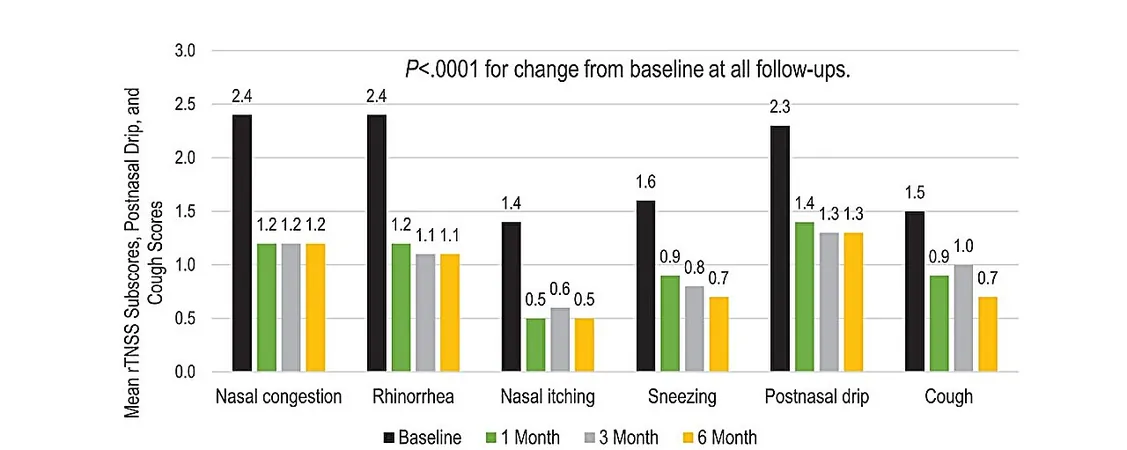
Chronic Cough Wreaking Havoc in Interstitial Lung Disease Patients: The Hidden Crisis Affecting Quality of Life
2024-09-18
Introduction
A recent comprehensive review has unveiled alarming insights into how chronic cough significantly impacts patients with idiopathic pulmonary fibrosis (IPF) and other interstitial lung diseases (ILD). Published in the journal *Respiratory Research*, this study emphasizes the urgent need for advancements in research and treatment protocols tailored for these patients.
Prevalence of Chronic Cough in ILD
The review meticulously analyzed 61 studies and revealed a staggering prevalence of chronic cough among individuals with ILD, notably, between 50% to 90% of those diagnosed with IPF experience this debilitating symptom. This persistent cough not only hinders daily activities but is often one of the earliest indicators of the disease, highlighting the need for early detection and intervention.
Methodologies in Assessing Cough Severity
Various methodologies were employed across the studies to evaluate cough severity and its overall toll on quality of life. The Cough Severity Visual Analogue Scale (VAS) and actual cough counts emerged as the most utilized tools, alongside quality of life assessments such as the St. George's Respiratory Questionnaire. The findings from both quantitative and qualitative studies shed light on the multifaceted burden of cough, revealing that patients feel overwhelmed by disruptions to their daily life, sleep disturbances, and the psychological toll resulting from social anxiety and caregiver distress.
Patient and Caregiver Experiences
Patients voiced profound frustration, with some ranking coughing as their most troubling symptom. They described their cough as “incredibly bothersome,” often triggered by physical activity, leading to further complications like sleep issues and even incontinence. Caregivers, too, reported feelings of helplessness as they witness the challenges faced by their loved ones.
Need for Standardization in Cough Assessment Tools
The review also highlighted a concerning gap in the standardization of tools aimed at assessing cough among ILD patients. This lack of consistency complicates the comparison of findings across various studies and underscores the necessity for the development of a universal, disease-specific cough assessment tool. The authors of the review stressed that this investment in research could not only enhance clarity in findings but also reveal the substantial economic burden chronic cough poses on patients, particularly regarding loss of workplace productivity.
Economic Impact of Chronic Cough
While the review did not delve deeply into the economic ramifications, one referenced study indicated a troubling link between severe cough and decreased productivity. Specifically, it found that for every 1 mm increase in the cough severity VAS, the odds of productivity loss surged by 3%.
Lack of Targeted Treatment Options
In light of the overwhelming burden chronic cough places on patients, the review illuminated a glaring dearth of targeted treatment options. Chronic cough in ILD is often the result of various contributing factors, including mechanical distortions, sensitivity in cough reflex, mucus overproduction, and co-existing conditions like gastroesophageal reflux disease and asthma that exacerbate symptoms. Current treatments largely concentrate on managing the underlying lung disease rather than addressing cough specifically, leaving a critical gap in patient care.
Conclusion and Future Directions
The profound correlation between cough severity and diminished quality of life, paired with the lack of specialized treatments, signifies an urgent clinical and patient need that warrants immediate attention. The authors of the study expressed their hope that by raising awareness of the specific challenges posed by cough in patients with IPF and ILD, further research can be ignited, paving the path towards effective treatment strategies and support systems.
This growing recognition of chronic cough as a legitimate, life-affecting symptom in respiratory diseases could potentially lead to breakthroughs that transform patient experiences. As we stand on the cusp of new research horizons, one can only hope that these insights will culminate in improved care and quality of life for those battling these challenging lung diseases.



 Brasil (PT)
Brasil (PT)
 Canada (EN)
Canada (EN)
 Chile (ES)
Chile (ES)
 España (ES)
España (ES)
 France (FR)
France (FR)
 Hong Kong (EN)
Hong Kong (EN)
 Italia (IT)
Italia (IT)
 日本 (JA)
日本 (JA)
 Magyarország (HU)
Magyarország (HU)
 Norge (NO)
Norge (NO)
 Polska (PL)
Polska (PL)
 Schweiz (DE)
Schweiz (DE)
 Singapore (EN)
Singapore (EN)
 Sverige (SV)
Sverige (SV)
 Suomi (FI)
Suomi (FI)
 Türkiye (TR)
Türkiye (TR)